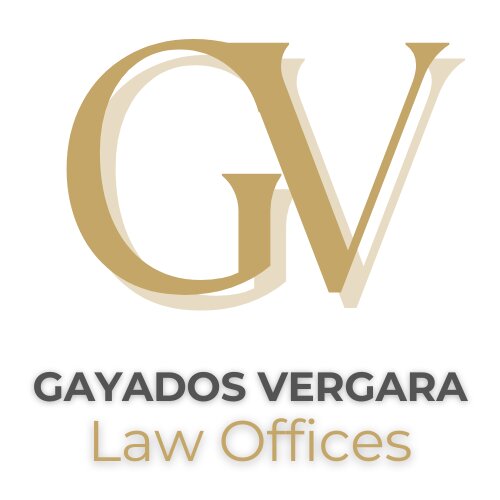Best Mining Law Lawyers in Philippines
Share your needs with us, get contacted by law firms.
Free. Takes 2 min.
Or refine your search by selecting a city:
List of the best lawyers in Philippines
About Mining Law in Philippines
Mining Law in the Philippines refers to the collection of laws, regulations, and government policies governing the exploration, extraction, and management of mineral resources within the country. The legal framework aims to balance the economic benefits of mining with the protection of the environment and the rights of indigenous peoples and local communities. The cornerstone of mining regulation is Republic Act No. 7942, also known as the Philippine Mining Act of 1995, which establishes the legal requirements for mining operations and ensures responsible mineral resource development.
Why You May Need a Lawyer
Dealing with Mining Law in the Philippines can be complex due to the wide range of legal, environmental, and social issues involved. Common situations where you may require legal help include:
- Securing mining permits and licenses from the government
- Negotiating mineral agreements and joint ventures
- Addressing land ownership or indigenous peoples' rights
- Ensuring compliance with environmental laws and regulations
- Defending against regulatory enforcement actions or disputes
- Managing community relations and addressing grievances
- Advising on taxation and government royalties related to mining
- Representing interests in court or before administrative agencies
A skilled lawyer can help you navigate these challenges, protect your legal rights, and ensure that your mining interests are managed in accordance with Philippine law.
Local Laws Overview
Mining in the Philippines is mainly governed by the Philippine Mining Act of 1995, which outlines the framework for mineral exploration, development, utilization, and conservation. Some key aspects of mining laws and regulations in the Philippines include:
- Mineral Agreements - The law provides for three main types of mining agreements: Mineral Production Sharing Agreements (MPSA), Co-Production Agreements, and Joint Venture Agreements.
- Permits and Licensing - Exploration and extraction require permits from the government, including exploration permits, mineral agreements, and environmental compliance certificates (ECC).
- Environmental Compliance - Mining operations must adhere to environmental guidelines and undergo Environmental Impact Assessments (EIA).
- Indigenous Peoples’ Rights - The Indigenous Peoples’ Rights Act (IPRA) ensures that mining on ancestral lands needs Free, Prior and Informed Consent (FPIC) from indigenous communities.
- Taxation and Royalties - Mining companies are required to pay taxes and government royalties based on the value of the minerals extracted.
- Social Development - Mining firms must implement Social Development and Management Programs (SDMP) to benefit affected communities.
- Small-Scale Mining - Governed by the People’s Small-Scale Mining Act of 1991, with specific rules for safe and legal operations.
Local ordinances and provincial regulations may also apply, complementing national mining policies.
Frequently Asked Questions
What is required to start a mining business in the Philippines?
To start a mining business, you need to secure the appropriate permits such as an exploration permit, mineral agreement, and an Environmental Compliance Certificate. Compliance with zoning, environmental, and community consent requirements is also necessary.
Who owns the minerals found in the Philippines?
All mineral resources in the Philippines are owned by the State. Individuals or companies may utilize these resources through agreements or permits issued by the national government.
What are the main types of mining agreements available?
The main types of agreements are Mineral Production Sharing Agreements (MPSA), Co-Production Agreements, and Joint Venture Agreements. Each has different conditions for sharing revenue and responsibilities.
How does the law protect indigenous peoples affected by mining?
The Indigenous Peoples’ Rights Act (IPRA) protects indigenous communities by requiring mining companies to obtain Free, Prior and Informed Consent (FPIC) before operating on ancestral lands, ensuring respect for their rights and traditions.
What environmental regulations must be followed?
Mining firms must conduct an Environmental Impact Assessment (EIA), secure an Environmental Compliance Certificate (ECC), and follow guidelines for mine rehabilitation, water usage, waste management, and land restoration after mine closure.
Is small-scale mining allowed?
Yes, small-scale mining is allowed but regulated by the People’s Small-Scale Mining Act of 1991. Operators must get Small-Scale Mining Permits and comply with safety, health, and environmental standards.
Are there taxes or royalties for mining?
Yes, mining companies are subject to various taxes and royalties, including excise tax on minerals, corporate income tax, and government royalties based on the value or volume of minerals extracted.
What are the penalties for illegal mining?
Engaging in mining without the proper permits can lead to fines, confiscation of minerals and equipment, and criminal prosecution. Environmental violations can also result in closure of operations and administrative penalties.
Can foreign companies engage in mining?
Foreign companies may participate in mining under Financial or Technical Assistance Agreements (FTAA) with the government, subject to limitations on ownership and compliance with local laws.
What should a community do if affected by mining activities?
Communities can engage with the mining operator, government agencies, and seek legal assistance to address grievances, ensure benefits, and demand compliance with environmental and social obligations.
Additional Resources
If you need further information or assistance regarding Mining Law in the Philippines, the following resources and organizations may be helpful:
- Department of Environment and Natural Resources (DENR) - Mines and Geosciences Bureau (MGB)
- National Commission on Indigenous Peoples (NCIP)
- Environmental Legal Assistance Center (ELAC)
- Chamber of Mines of the Philippines
- Legal Aid Clinics and Law Offices specializing in natural resources or environmental law
Next Steps
If you believe you need legal assistance with Mining Law issues in the Philippines, consider the following actions:
- List down your specific concerns or questions about your mining situation
- Gather relevant documents such as permits, agreements, correspondences, and official notices
- Contact a lawyer or law firm with experience in Mining Law and related fields
- Schedule a consultation to discuss your case and explore your legal options
- Communicate with relevant government agencies, if necessary, for clarification or compliance matters
- Stay informed on new laws, regulations, or court decisions that may affect your case or project
Consulting with a legal professional can help you make informed decisions and avoid potential pitfalls when dealing with mining interests in the Philippines.
Lawzana helps you find the best lawyers and law firms in Philippines through a curated and pre-screened list of qualified legal professionals. Our platform offers rankings and detailed profiles of attorneys and law firms, allowing you to compare based on practice areas, including Mining Law, experience, and client feedback.
Each profile includes a description of the firm's areas of practice, client reviews, team members and partners, year of establishment, spoken languages, office locations, contact information, social media presence, and any published articles or resources. Most firms on our platform speak English and are experienced in both local and international legal matters.
Get a quote from top-rated law firms in Philippines — quickly, securely, and without unnecessary hassle.
Disclaimer:
The information provided on this page is for general informational purposes only and does not constitute legal advice. While we strive to ensure the accuracy and relevance of the content, legal information may change over time, and interpretations of the law can vary. You should always consult with a qualified legal professional for advice specific to your situation.
We disclaim all liability for actions taken or not taken based on the content of this page. If you believe any information is incorrect or outdated, please contact us, and we will review and update it where appropriate.
Browse mining law law firms by city in Philippines
Refine your search by selecting a city.
















